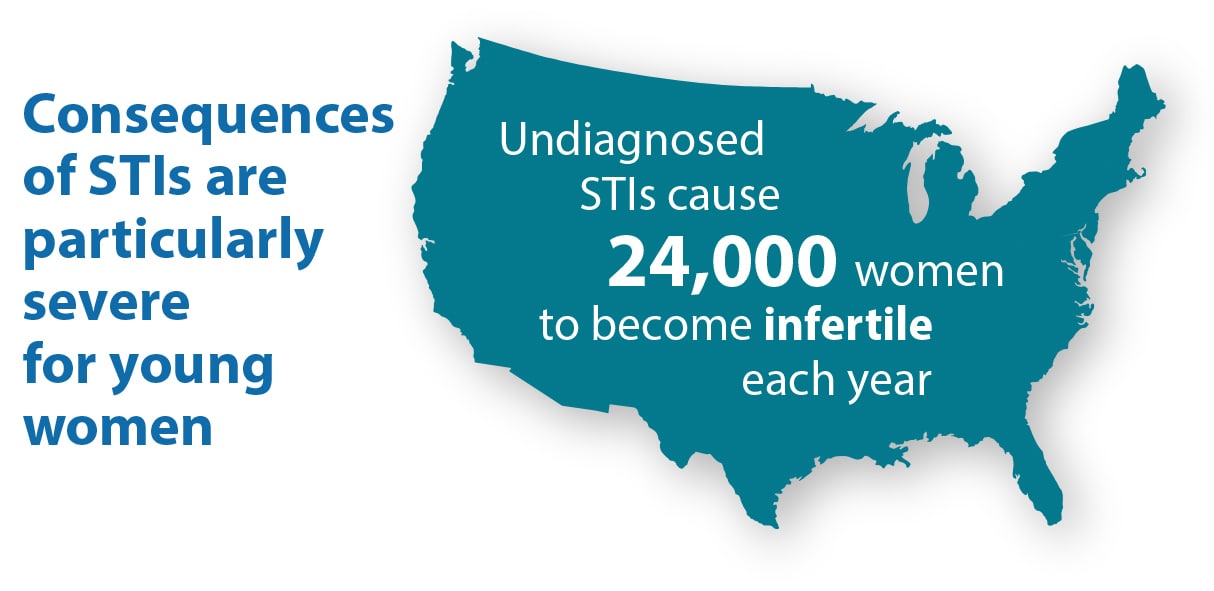Chlamydia can be treated and cured easily, but that doesn’t mean that chlamydia infection isn’t potentially dangerous. If chlamydia is not detected and left untreated, it can cause complications serious complications in men and women.

Untreated chlamydia infections in women may lead to:
- Pelvic inflammatory disease (PID), a serious infection of a woman’s reproductive organs (uterus, fallopian tubes and ovaries). Left untreated, PID can cause infertility (and inability to become pregnant or maintain a pregnancy), chronic pelvic pain, or ectopic (tubal) pregnancy .
- Cystitis (inflammation of the urinary bladder)
- A condition called mucopurulent cervicitis, characterized by a yellow discharge from the cervix
Untreated chlamydia in men may lead to:
- Prostatitis (inflammation of the prostate gland)
- Scarring of the urethra
- Infertility
- Epididymitis (inflammation of the epididymis, which is the elongated, cord-like structure that runs along the back of each testes)
More about Pelvic Inflammatory Disease
For women, one of the most serious complications from untreated chlamydia is pelvic inflammatory disease (PID). According to the Centers for Disease Control and Prevention, between 10–20% of women with untreated chlamydia and gonorrhea infections may develop PID. And 1 in 8 women with a history of PID experience difficulties getting pregnant. PID can also cause ectopic pregnancy (where a fertilized egg implants outside of the uterus) and chronic pelvic pain.
Like chlamydia, it is possible for a woman to have PID and not have any symptoms, or have symptoms too mild to notice, for an unknown period of time. If symptoms do occur, they could include:
- Dull pain or tenderness in the lower abdomen
- Burning or pain when you urinate (pee)
- Nausea and vomiting
- Bleeding between menstrual periods
- Increased or changed vaginal discharge
- Pain during sex
- Fever and chills
PID can also be misdiagnosed as appendicitis, ectopic pregnancy, ruptured ovarian cysts or other problems.
PID can be treated successfully, if diagnosed and treated early. But any damage that may have been caused to the reproductive system cannot be reversed. This is why regular testing for chlamydia, and immediate treatment, is important.
